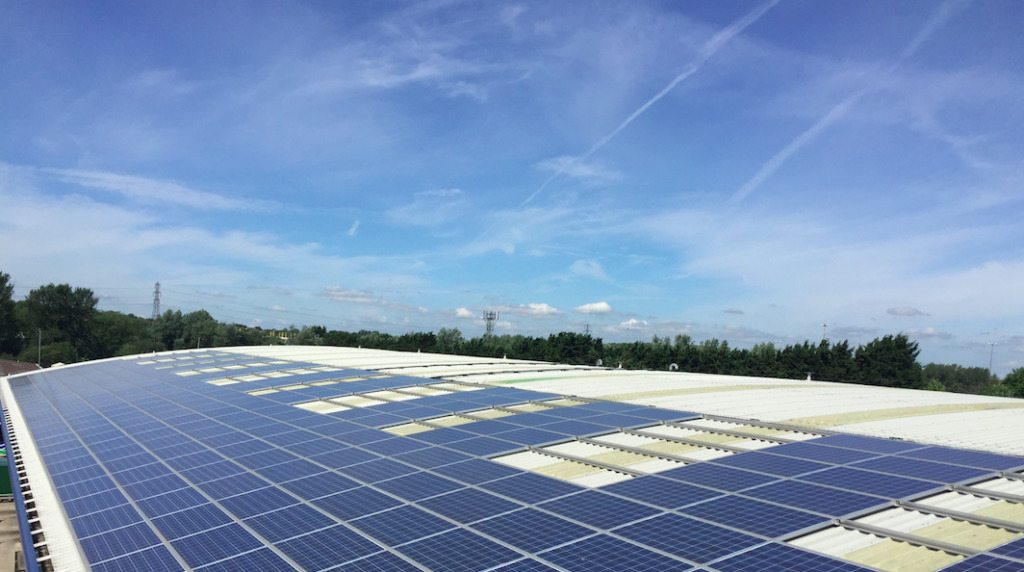Nationalised energy companies and energy storage partnered with renewables at all scales holds the key to transforming Britain’s energy supply, according to Public Power Solutions’ James Owen.
Speaking to Next Energy News at the site of his company’s 100kWp solar install on the Thamesdown Bus Depot, Owen outlined why he was convinced that renewables can provide the UK with the energy infrastructure it requires.
As is becoming a wider symptom in the UK’s solar industry, connecting to the grid at a utility-scale has become increasingly problematic due to limited spare capacity. But now the limitations of the grid are impacting larger commercial rooftop installations – a key segment that government wants to see expand.
Asked if solving the UK’s grid problems is akin to turning the Titanic, Owen replies that the timelines involved in solving the issue are only problematic if you take a short-term view.
He explains: “If you’re not chasing a subsidy and you say to yourself, ‘I work in a sustainable long-term industry, not a fad industry’ – from that perspective you realise that if it takes five years, that’s fine. You have to think, ‘in the meantime what can I do?’”
Owen thinks that the solution lies in the potential rise of energy storage. He says: “Our vision is multi-levels of storage: domestic-level, street-level and district-level.”
Owen’s vision would see all of these scales of storage partnered with corresponding sizes of renewable installation. For example, a home’s first point of call would be to draw energy from its personal battery bank charged by the house’s PV array. Once the battery is depleted, the house accesses street-level storage to draw its electricity and, failing that, the house can access district-level storage which would be partnered with large-scale solar farms.
Owen adds: “It’s not inventing anything new. In fact the public sector was doing this 120 years ago – up until the National Grid in the late 30s and privatisation in the 80s, it was still done by the public sector. But the public sector has forgotten that they used to be the energy companies.
“For me, the future of renewables is: 1. Decentralised. 2. Multiple renewables technologies. 3. Energy storage. 4. The public and community sector.”
It appears that the British public mirror Owen’s appetite to nationalise the energy companies, a YouGov poll discovered that 68% of the public would like to see energy companies run by the public sector. Thursday’s news that British Gas is making 6,000 redundancies despite increasing profits will only help reinforce the public’s view that privatisation of the energy companies has failed.
Owen concludes: “The public sector, if they do it properly, can beat the Big Six.”






